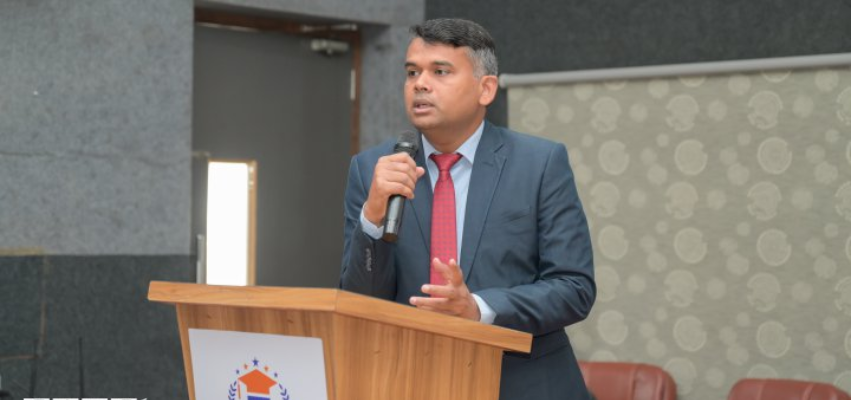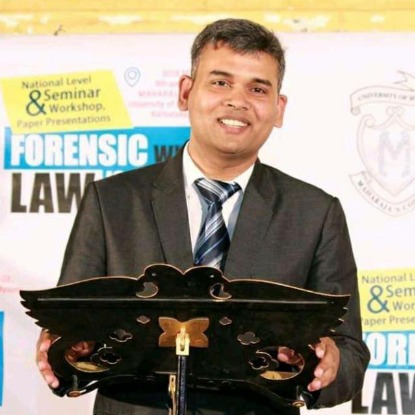Some experiences stand out not only because of the knowledge shared but because of the energy, curiosity, and transformation they bring to a room full of learners.
My recent sessions at Malla Reddy University, alongside my colleagues Darshan Murali and Vaidik Patidar, were exactly that kind of experience.
Over the course of a 3-day workshop, we engaged with students and professionals on the crucial topics of cyber attacks, digital forensic tools, and crime scene simulation.
As I look back on those three days, what stays with me is the sheer enthusiasm of the participants and their hunger to understand how this ever-changing digital world impacts our safety, careers, and future.
Setting the Stage: Why Cyber Security Matters Today
We began by acknowledging the reality that today’s world is more connected than ever before and with that connectivity comes vulnerability.
Cyber threats are no longer distant, technical issues affecting only corporations; they are everyday risks that touch individuals, businesses, and even governments.
From phishing attacks that trick unsuspecting users into giving up sensitive information to ransomware that can cripple entire organizations, the spectrum of threats has grown alarmingly wide.
Add to that malware, identity theft, and social engineering, and the digital world suddenly feels like a battlefield.
I reminded participants that cyber security is no longer optional. It’s a life skill, much like financial literacy or communication.
And those who master it will not only protect themselves but also create career opportunities in one of the fastest-growing fields today.
Exploring the Power of Digital Forensics
While Darshan and Vaidik shared their deep expertise on evolving cybercrime trends, I focused on how digital forensics acts as a shield in this fight.
Cyber attacks may be invisible, but they always leave a trail. The job of a digital forensic expert is to uncover that trail, whether it’s hidden in system logs, encrypted files, or cloud storage.
I explained how digital forensics is more than just recovering data. It’s about piecing together evidence, maintaining its integrity, and presenting it in a way that stands strong in legal proceedings.
This is where science, law, and technology intersect, making the field both challenging and incredibly impactful.
Through real-world case studies, I demonstrated how forensic experts crack cases ranging from corporate data breaches to online financial fraud. Students were fascinated to see how small details like metadata in an email or hidden IP addresses can become the key to solving complex cybercrimes.
Hands-On Learning: Crime Scene Simulation and Tools
One of the highlights of the workshop was the crime scene simulation. We recreated digital crime scenarios where participants had to investigate, collect evidence, and analyze it using forensic tools.
Watching them step into the role of cyber investigators was incredibly rewarding.
We also introduced them to cyber security tools that professionals use in real investigations, everything from malware analysis software to network monitoring systems.
What made this engaging was not just the demonstration but the live, hands-on exploration where students could experiment with the tools themselves.
This interactive approach broke the monotony of lectures and turned the sessions into action-packed learning experiences.
By the end of the simulations, participants weren’t just listeners they were problem solvers.
The Human Side of Cyber Security
Beyond the technical discussions, I wanted participants to reflect on the human aspect of cyber security. Technology can provide us with powerful tools, but it’s ultimately human behavior, our awareness, decisions, and ethics and that determines whether we stay secure.
For instance, no firewall can prevent someone from clicking a suspicious link if they are unaware of the risks.
Similarly, forensic experts may have cutting-edge tools, but it is their critical thinking, teamwork, and sense of responsibility that turn those tools into solutions.
This blend of technical skills and human values is what makes a true cybersecurity professional.
Students’ Energy and Curiosity
What impressed me most was the curiosity of the participants. Their questions were sharp and forward-looking:
How do we handle cross-border cyber crime cases?
Can AI be used to predict cyber attacks before they happen?
What are the ethical challenges of digital forensics?
These questions made me realize that the next generation is not just preparing for jobs, they are preparing to shape the future of cyber security.
As the workshop concluded, I felt grateful to have been part of such an enriching initiative. The hospitality and support from Malla Reddy University made the experience seamless, and the dedication of the organizing team ensured that every detail contributed to the students’ learning.
I also felt proud of my colleagues, Darshan and Vaidik, whose insights and expertise added so much depth to the sessions.
Together, we created an environment where students could not only learn but also imagine themselves as future leaders in this field.
Cyber threats will continue to evolve, and with them, the demand for skilled professionals will only grow.
My message to the participants was simple: keep learning, stay curious, and never underestimate the importance of awareness.
Cyber security isn’t just about defending systems, it’s about defending trust, privacy, and ultimately, society.
Leaving the campus, I carried with me a renewed sense of optimism. The enthusiasm I witnessed assured me that the future of cybersecurity is in capable hands.
If these students continue their journey with the same spirit, they will not only face cyber threats head-on but also pioneer innovative solutions to make our digital world safer.
Final Thoughts
The three days at Malla Reddy University were more than just a workshop they were a reminder of why education and awareness are our strongest weapons against cyber crime.
And as I reflect on the experience, I know that each participant walked away not just informed, but truly inspired to make a difference.


